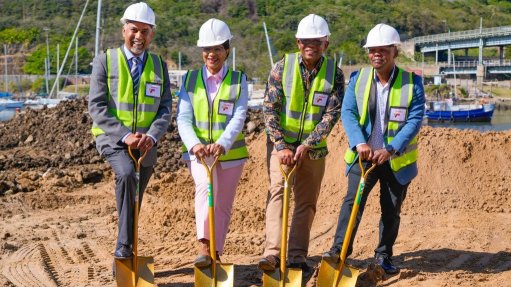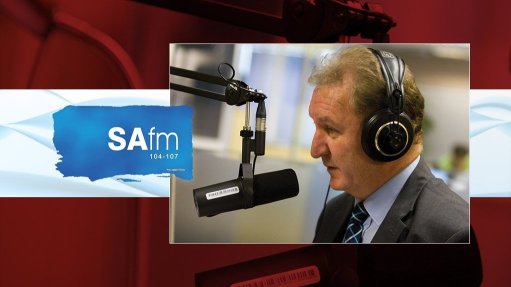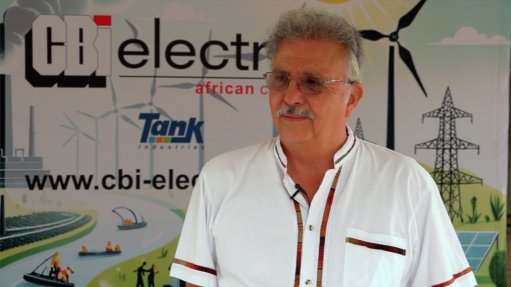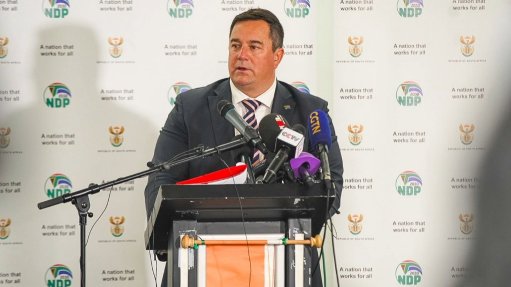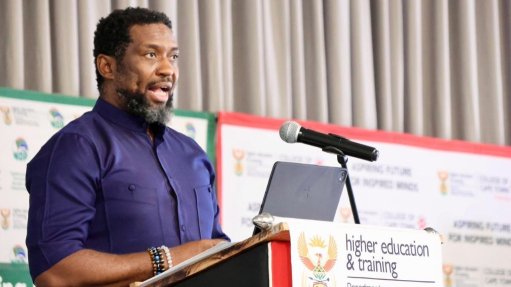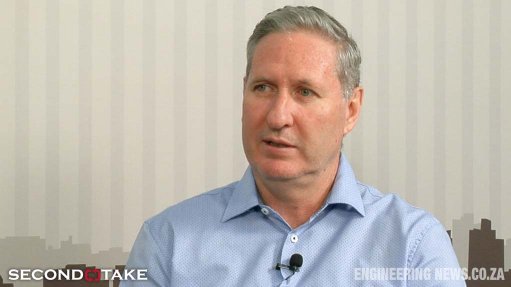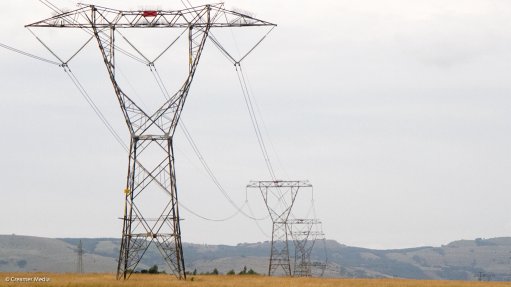Ethiopian leader pushing ahead with economic reforms, despite the armed conflict in Tigray
I recently received a horrifying message from a friend in Guinea-Bissau. She had narrowly escaped death while working in the Presidency during the failed coup on February 1. “When the shooting started, I had gone to the bathroom and managed to escape that way – but two of my colleagues died. It’s very tense and apprehensive, but the situation seems to be controlled.”
The failed coup in Guinea-Bissau brings to five the number of military coups or attempted coups in Africa within a year.
Military interventions do little good and a great deal of harm. Quite apart from the murders of civil servants and unacceptably terrorising people in office, they invariably impoverish the population and increase corruption. Coups trigger a cycle of international and regional sanctions and suspended development financing. Corruption increases as new military dictators attempt to keep allies on their side, and democratic accountability is lost.
The military’s role in the modern State is to protect it from external threats and extreme internal armed insurgency; its role is not to govern. The intervention of the Ethiopian National Defence Force (ENDF) in the semiautonomous Tigray region technically falls into the second category – to protect the State from internal armed insurgency. Ethiopia’s Prime Minister, Abiy Ahmed, made this point to the African Union Assembly on February 6 as it gathered to discuss the recent coups. Abiy struck back at critics of his intervention against Tigrayan rebels. In October and November 2021, the Tigrayan People’s Liberation Front (TPLF) advanced into neighbouring Amhara and Afar regions, capturing strategic towns and prompting the ENDF to launch an all-out counteroffensive. The ENDF, employing Turkish-supplied deadly drone strikes in Tigray, forced a TPLF withdrawal from Amhara and Afar on December 20.
Was the Tigrayan rebellion and federal intervention inevitable? At the heart of the conflict are Abiy’s reforms, which involve ending three decades of Tigrayan dominance through the former ruling party, the Ethiopian People’s Revolutionary Democratic Front, over the State’s institutions – from the military to the State-controlled economy. Tigrayans imposed federal government based on semiautonomous, ethnicity-based states. While national wealth increased through two decades of double-digit growth (11% to 12% since 2011), ethnonationalism fostered widespread distrust and grievance over the distribution of that wealth, amid a perception of favouritism based on the ethnicity of those in government.
Since 2018, Abiy has sought to reduce Tigrayan dominance and shift from ethnonationalism to a new pan-Ethiopianism. Tigray and the TPLF resisted. The TPLF stayed out of the merger of the former ruling ethnic coalition into a single Prosperity Party. The new party conforms to new electoral provisions and won National Electoral Board of Ethiopia (NEBE) recognition in November 2019, ahead of elections. However, the TPLF no longer conforms to NEBE provisions, resulting in its official exclusion and prompting Tigray to boycott the elections. The TPLF also contested Abiy’s decision to postpone elections due in May 2020 to July 2021 because of the Covid-19 pandemic and restrictions to curtail its spread.
Abiy also used a crackdown on corruption to end Tigrayan dominance of State-controlled enterprises. Business sources report a government ‘instruction’ to remove Tigrayans from corporate boards where the State is a shareholder. These issues combined, in Tigray, to a significant loss of trust and allowed Tigrayan leaders to question Abiy’s legitimacy and justify their turning to armed conflict.
As with all military interventions, the cost to Ethiopia’s economy has been substantial, particularly following a 4% drop in gross domestic product as a result of the Covid-19 pandemic. Most damaging has been the US cancelling Ethiopia’s access to the African Growth and Opportunity Act (Agoa) from January 1, citing the ongoing conflict and human rights violations. Under Agoa, Ethiopia enjoyed duty-free access to the US market for about 1 800 export products. The loss of access to Agoa has forced clothing manufacturers supplying the US to close down and pull out.
The human cost, mainly to Tigray, has been enormous. The TPLF’s retreat has underpinned its inability to conduct a prolonged war, prompting it to call for a ceasefire. The role of Eritrean armed forces – allegedly at Abiy’s behest – has been highly controversial. The Norwegian Nobel Committee called on Abiy, the Nobel Peace Prize winner in 2019, to pursue peace. The European Union and the US have threatened further sanctions if belligerents refuse to start talks. However, international and domestic pressure has led to signs that a settlement may be on the horizon. A recent prisoner release signals Abiy’s willingness for a truce. Conditions exist for peace – and that, taking Ethiopia’s past into account, could last for another generation.
Crucially, for business, Abiy has doggedly continued his reform focus, despite the conflict. Outside Tigray, elections went ahead, handing Abiy a landslide victory and an October inauguration. With equal determination, Abiy has pursued his economic reforms, granting new mobile licences, opening more sectors to private investment, and taking steps towards a more flexible exchange rate. Crucially, key reformers have been reappointed to his second term.
Like Nigeria, Ethiopia is the economy that businesses that are serious about Africa cannot ignore: it calls for long-term investment – at least for a generation.
Article Enquiry
Email Article
Save Article
Feedback
To advertise email advertising@creamermedia.co.za or click here
Comments
Announcements
What's On
Subscribe to improve your user experience...
Option 1 (equivalent of R125 a month):
Receive a weekly copy of Creamer Media's Engineering News & Mining Weekly magazine
(print copy for those in South Africa and e-magazine for those outside of South Africa)
Receive daily email newsletters
Access to full search results
Access archive of magazine back copies
Access to Projects in Progress
Access to ONE Research Report of your choice in PDF format
Option 2 (equivalent of R375 a month):
All benefits from Option 1
PLUS
Access to Creamer Media's Research Channel Africa for ALL Research Reports, in PDF format, on various industrial and mining sectors
including Electricity; Water; Energy Transition; Hydrogen; Roads, Rail and Ports; Coal; Gold; Platinum; Battery Metals; etc.
Already a subscriber?
Forgotten your password?
Receive weekly copy of Creamer Media's Engineering News & Mining Weekly magazine (print copy for those in South Africa and e-magazine for those outside of South Africa)
➕
Recieve daily email newsletters
➕
Access to full search results
➕
Access archive of magazine back copies
➕
Access to Projects in Progress
➕
Access to ONE Research Report of your choice in PDF format
RESEARCH CHANNEL AFRICA
R4500 (equivalent of R375 a month)
SUBSCRIBEAll benefits from Option 1
➕
Access to Creamer Media's Research Channel Africa for ALL Research Reports on various industrial and mining sectors, in PDF format, including on:
Electricity
➕
Water
➕
Energy Transition
➕
Hydrogen
➕
Roads, Rail and Ports
➕
Coal
➕
Gold
➕
Platinum
➕
Battery Metals
➕
etc.
Receive all benefits from Option 1 or Option 2 delivered to numerous people at your company
➕
Multiple User names and Passwords for simultaneous log-ins
➕
Intranet integration access to all in your organisation






